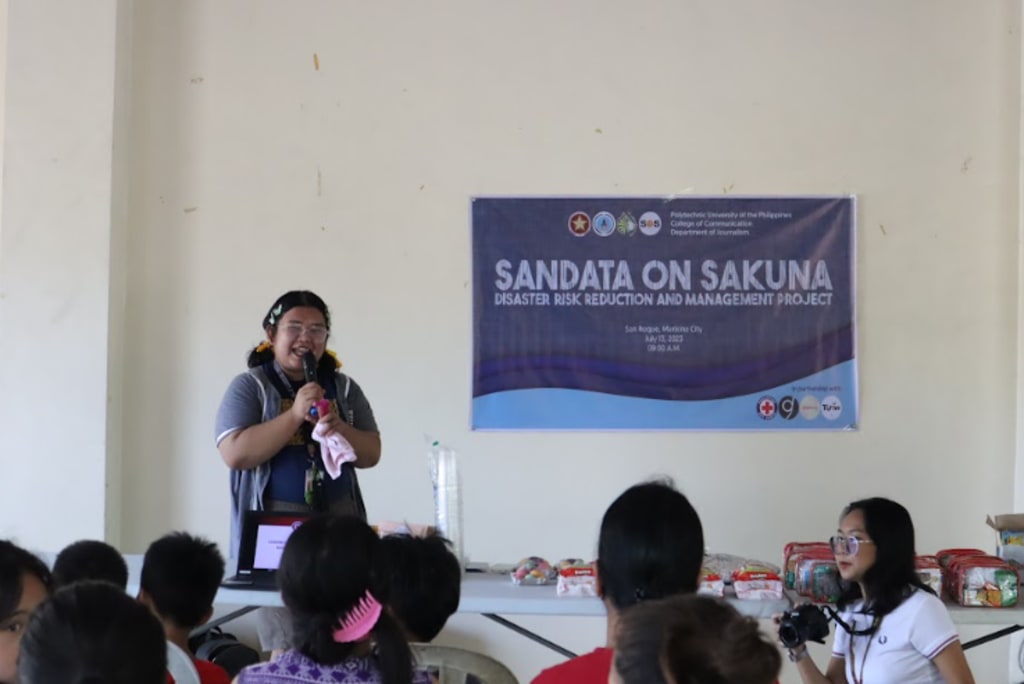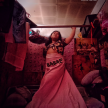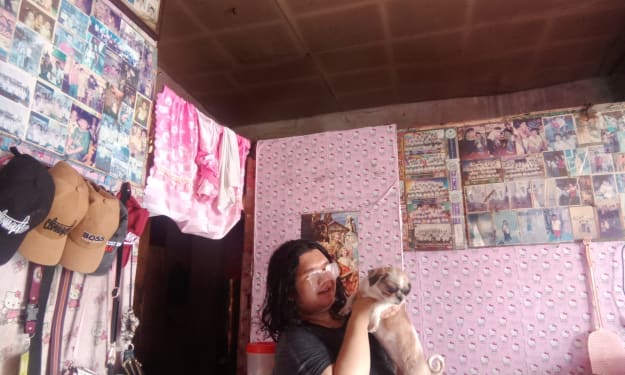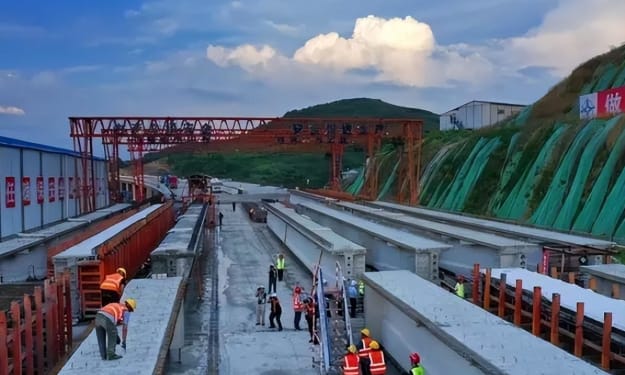Chicken Blood
I grew up in a barrio where a method of survival includes a ritualistic offering

I grew up in a barrio whose method of survival includes a ritualistic offering of chicken or pig's blood—asking for protection from a deity. However, the decade-long tradition became an excuse of most local officials to gloss over the difference between supernaturality and competency. Our barrio suffered for several years considering our limited accessibility to information, and no amount of chicken or pig's blood can revive our submerged lives, residences, and livelihoods.
When I moved to Manila, the chicken blood tradition succumbed to the idea of resiliency. Jokingly, perhaps no blood should be wasted, as the demand for betamax (a kind of Filipino street food where a pig's blood is grilled into cubes) has risen in the market. I remembered watching news reports in 24 Oras (a Filipino news program) about the continuous rising of Marikina River, which upended several communities around the city. However, little to none put a keen eye on the ways it could have been prevented, but solely focused on relief operations, blame game, and the worn-out Filipino resiliency—yet we are still wondering why the damages and losses are becoming more severe than the previous ones.
The condition shows that there is a systemic dilemma in terms of disaster management. Indeed, disasters are inevitable, but I'd argue that there is a lack of recalibration of strategies that address the actual struggles of communities who have been among the most vulnerable to disasters. This has manifested in the story of Nanay Jess, community leader of Bahay na Bato in San Roque, who shared that given the limited accessibility to information, they also suffer from limited visibility towards issues that concern them as well. As a result, their needs and demands are neglected. Residents are residing in a low-lying area beside a creek that can easily overflow in a short span of downpour. There is also a non-existence of warning systems that can be utilized, and even local hotlines are unfamiliar to them which are significant in times of disasters.
Hence, we built a community extension program called "Sandata on Sakuna (SOS)" that aims to address their concerns in terms of disaster preparedness and management. During the program, adults and kids were enthusiastic to participate in the discussion, as they also mentioned that they have not attended other disaster-related discussions even before. A participant even threw a banter mentioning that most of them rely on the kaniya-kaniyang balot (all by themselves) system especially when floods are nearly reaching a waist-level high.
Local officials can maximize efforts to centralize the needs for more community-based strategies particularly in terms of disaster risk reduction and management. In fact, we have the DRRM Act and other initiatives, aiding support for DRRM projects. However, most of them are toothless, not implemented well, and even initiatives are defunded by the government such as the Project NOAH. It is a clear manifestation of how DRRM is perceived, suggesting that resiliency is the only thing that can save us—furtherly showing of choosing the offering of chicken blood, rather than an actual humanitarian response.
The residents of Bahay na Bato suffer from intersections of dilemmas ranging from political, social, and economic conditions. Thus, we have to establish community-based approaches, as well as shaking the stagnant fascination of putting emphasis only on responses and building programs when communities are already submerged. It is such a shame of how DRRM is perceived in the Philippines considering that for residents of Bahay na Bato, it creates a thin line between safety and death. Sacrificing chicken blood cannot be of service for humanity—and if we continue to disregard the essence of DRRM—chicken bloods are not only being sacrificed, it also includes the lives, bloods, and livelihoods of more innocent residents.
About the Creator
John Michael F. Odtohan
A writer, student journalist, advocate for queer rights, and aspires to work in film and TV production. Fly high, Trans Pinay!
Enjoyed the story? Support the Creator.
Subscribe for free to receive all their stories in your feed. You could also pledge your support or give them a one-off tip, letting them know you appreciate their work.






Comments
There are no comments for this story
Be the first to respond and start the conversation.